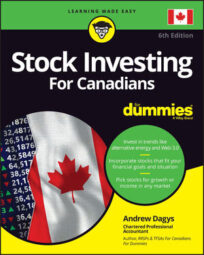If you’re the owner of a small business in Canada, your company is likely your most valuable asset. You may have dreams of selling the business one day and using the proceeds to travel or invest in another business. Or you may be considering selling part of your business to a partner to reduce the amount of time you have to spend at the office. If this is you, then here’s some straightforward advice on how to minimize taxes on the sale of your business!

Evaluate your options
Two models typically exist for selling a business: the asset sale, and the share sale. Which model you use depends on the type of business and the needs of the seller and buyer. Each model has different tax consequences. Here’s a closer look at the two models:
An asset sale, common for unincorporated businesses and businesses in capital-intensive industries such as transportation, is often preferred by the buyer. In an asset sale, the buyer purchases only the assets of a business. In so doing, the buyer can avoid taking on any potential corporate liabilities that come with purchasing shares and may benefit from increased tax deductions that would not be available in a share deal.
A share sale is often favoured by the seller. In a share sale, the seller sells the shares (well, duh) and reports whatever capital gains are realized. The great appeal of this strategy is that the seller may be able to take advantage of a capital gains tax exemption that is not available in an asset deal.
Take advantage of qualified small business corporation share status
If you own shares of a small business corporation you won’t want to miss this one — arguably the best tax break in Canada. In 2007 the government increased the capital gains exemption from the disposition of qualified small business corporation (QSBC) shares from $500,000 to $750,000. This $250,000 increase was also extended to the sale of qualified farm and fishing property. If you made use of the previous $500,000 capital gains exemption, you now have another $250,000 to use should you own qualified small business corporation shares or qualified farm or fishing property.
Just to be clear — when you sell shares of a QSBC, the first $750,000 of proceeds you receive on the sale of your business may be exempt from tax. Check with your tax professional.
Understand the term “qualified small business corporation”
A share of a corporation will be considered to be a QSBC share if the following criteria are met:
At the time of sale, it was a share of the capital stock of a Canadian controlled private corporation (CCPC), and it was owned by you, your spouse, or a partnership of which you were a member.
At the time of sale, at least 90 percent of the corporation’s assets at market value were used by the corporation in an active (for example, non-rental, non-investment) business.
Throughout the 24 months immediately before you disposed of the share, it was a share of a CCPC and more than 50 percent of the market value of the assets of the corporation were used mainly in an active business carried on primarily in Canada.
Throughout the 24 months immediately before you disposed of the share, no one other than you, a partnership of which you were a member, or a person related to you owned the share.
Know how to report a tax-exempt gain
You report the capital gain or loss realized on the sale of QSBC shares in section 1 of schedule 3, “Qualified small business corporation shares.” A $750,000 capital gain would become a $375,000 taxable capital gain and be reported on line 127 of your return.
If the full $750,000 capital gain qualifies for the $750,000 capital gains exemption, you would be able to claim a $375,000 capital gains deduction. Claim it on line 254 of your return and include form T657, “Calculation of Capital Gains Deduction.” The line 254 deduction in computing taxable income would offset the line 127 inclusion in taxable income.
Be sure to visit a tax professional if you think your shares may qualify for the capital gains exemption. Even if they don’t currently qualify, it’s possible to “purify” the corporation of assets not considered to be active business assets, such as cash or investments, so that you will be eligible for this exemption when the time arises to sell the shares. This is one not to miss — get the help you need to make sure you take advantage of this strategy!
If you own QSBC shares, consider crystallizing — or locking in — your qualified small business corporation capital gains exemption now. You never know when the government might repeal the exemption, or when the rules listed above may no longer apply to your corporation.
If you operate your business as a sole proprietorship or partnership, you can’t access the capital gains exemption when you sell. You may be able to transfer your unincorporated business into an incorporated entity prior to a sale in order to make possible a sale of shares and in doing so be able to use the QSBC share exemption. Again — you’ll need professional help for this one.
Determine whether you may owe alternative minimum tax
When using the capital gains exemption, be wary of the implications of alternative minimum tax (AMT). The capital gain may be tax-free for “regular” tax but could result in AMT. What is AMT, you ask? It’s a special tax that’s charged when someone has a high amount of gross income but many favourable tax deductions, or “tax preferences” resulting in a significantly reduced tax liability for the year.
The types of deductions that may lead you to pay minimum tax include limited-partnership losses, resource expenses, and stock option deductions. If you have these types of deductions on your tax return, fill out form T691, “Alternative Minimum Tax,” to see whether the minimum tax will apply to you. If it does, don’t fret. You can use that minimum tax to offset regular taxes payable in any of the next seven years. Assuming you pay regular tax during those years, you will get your money back — consider it a prepayment of your future tax bill. Minimum tax is often more of a cash-flow issue than a true income tax.
Defer capital gains on eligible small business investments
Have you sold shares of a small business corporation during the year? If so, then read on. Even if you’ve used up the $750,000 capital gains exemption, it’s still possible to defer tax if you sell certain share investments and then replace those investments with new eligible small business investments.
To be eligible for this deferral, the shares you dispose of or repurchase must be of a Canadian-controlled private corporation (CCPC) that used at least 90 percent of the market value of its assets in an active business in Canada.
Time limits apply to this tax deferral. First, you must have held the original shares for more than 185 days. In addition, you must acquire the replacement shares at any time in the year of disposition or within 120 days after the year-end.
If you manage to defer your capital gain because of this rule, you must remember to decrease the adjusted cost base (ACB) of the “new” investment. You must do a number of calculations to come up with the exact ACB reduction. Take a look at the CRA’s (Canada Revenue Agency) guide to Capital Gains (T4037).
The rules for calculating the actual amount of gain you can defer are quite complex. If you need to use this deferral, it’s strongly recommended that you get a professional accountant involved.

